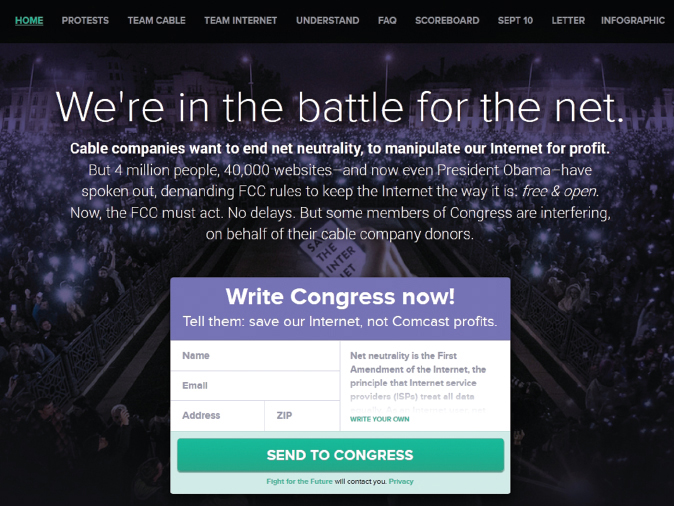The First Amendment and Democracy

On September 10, 2014, several popular Internet sites—
For most of our nation’s history, citizens have counted on journalism to monitor abuses in government and business. During the muckraking period, writers like Upton Sinclair, Ida Tarbell, and Sinclair Lewis made strong contributions in reporting corporate expansion and social change. Unfortunately, however, news stories about business issues today are usually reduced to consumer affairs reporting. In other words, when a labor strike, factory recall, or business shutdown is covered, the reporter mainly tries to answer the question, “How do these events affect consumers?” Although this is an important news angle, discussions about media ownership or labor management ethics are not part of the news that journalists typically report. Similarly, when companies announce mergers, reporters do not routinely question the economic wisdom or social impact of such changes but instead focus on how consumers will be affected.
At one level, journalists have been compromised by the ongoing upheavals of their own media businesses. As newspapers, magazines, and broadcast stations consolidate, downsize, outsource, or close down completely, and digital outlets spring up without a history or mission of news reporting, there are fewer journalists available to adequately cover and lead discussions on issues of politics, the economy, and media ownership. In fact, the very companies they work for are the prime buyers and sellers of major news-
As a result, it is becoming increasingly important that the civic role of watchdog be shared by both citizens and journalists. Citizen action groups like Free Press, the Media Access Project, and the Center for Digital Democracy have worked to bring media ownership issues into the mainstream. However, it is important to remember that the First Amendment protects not only the news media’s free-